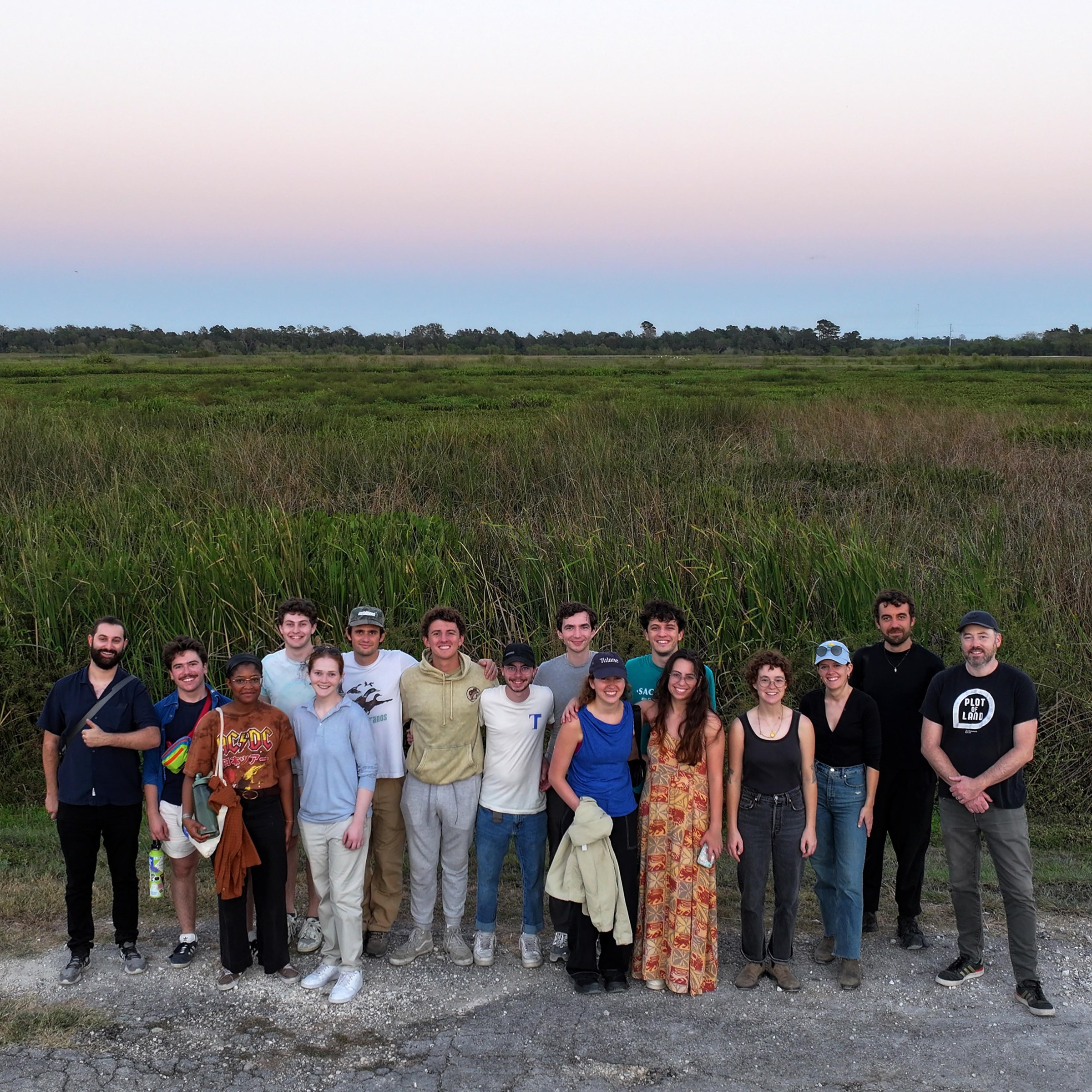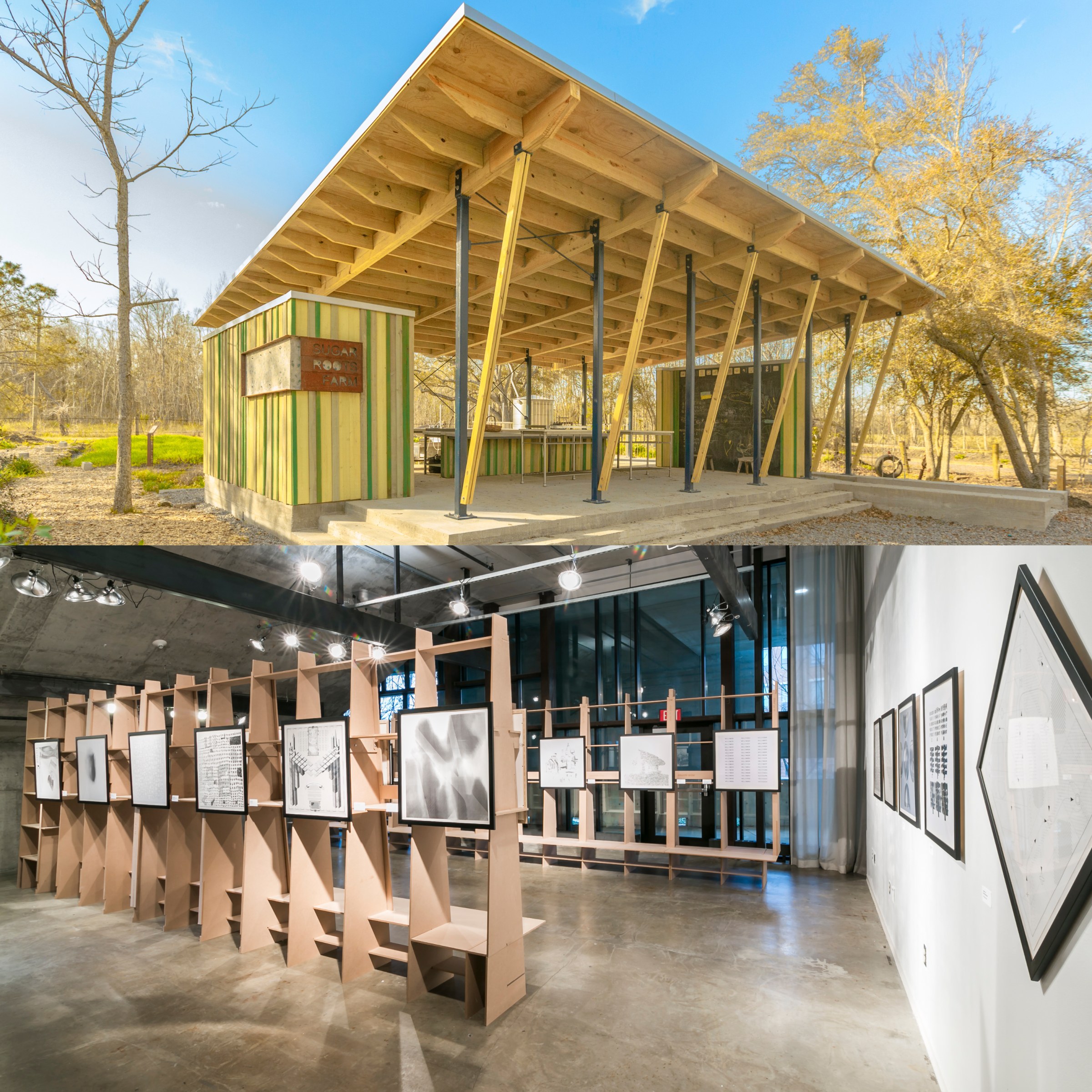Tulane-partnered proposal selected as finalists for $50 million Gulf Futures Challenge
SEPTEMBER 10, 2025
BY NAOMI KING ENGLAR
A proposal by faculty at Tulane School of Architecture and Built Environment, in partnership with the University of Houston, to reuse decommissioned wind turbine blades has been selected as one of ten finalists for a national grant through the National Academies of Sciences, Engineering, and Medicine (NASEM) Gulf Research Program.
The Gulf Research Program and Lever for Change selected the University of Houston-Tulane proposal to be in the running for the $50 million Gulf Futures Challenge.
Tulane faculty on the project are Assistant Professor Liz Camuti and Favrot IV Associate Professor of Architecture Adam Marcus.
The following is an excerpt from the NASEM press release, Sept. 9, 2025:
Upcycling Wind Turbine Blades: Enhancing Coastal Community Resilience and Health: University of Houston, Tulane School of Architecture and Built Environment, Tulane University, School of Public Health, University of Texas Health Science Center at Houston, City of Galveston, Texas, EMC Services, Inc., and EDP Renewables North America’s project will repurpose decommissioned wind turbine blades to build coastal structures that advance the resilience and health of Gulf coastal communities through research, education, and outreach.
The ten finalist projects are a collection of bold ideas that apply, translate, and communicate science, engineering, and medical knowledge to address critical challenges in the Gulf Coast region.
Representing all five Gulf states, these ten projects present creative visions for tackling the urgent challenges of energy security, environmental change, and community well-being, each through a distinct, locally grounded approach. The projects are united by a common goal of creating safer and more resilient communities where people in the Gulf can live, work, and thrive. From addressing flooding to repurposing decommissioned wind turbines, together, they are demonstrating how science can drive practical, people-centered solutions to today’s most pressing challenges.
“The Gulf Futures Challenge finalists exemplify the bold thinking and community-rooted innovation needed to navigate the complex transitions facing our environment, economy, and public health,” said Lauren Alexander Augustine, Ph.D., executive director of the Gulf Research Program. “We are proud to support their efforts and see them continue to build their ideas into action.”
The Gulf Futures Challenge received 164 applications from organizations based in Alabama, Florida, Louisiana, Mississippi, and Texas. Each entry was subject to participatory reviews and multiple rigorous evaluations by experts from science, engineering, and medicine. The finalists collectively represent all five states along the Gulf Coast and were selected based on four key criteria: whether they were impactful, bridging knowledge to action, innovative, and inclusive in their proposed approaches.
Each of the ten finalist teams will receive an initial project development grant of $300,000 and technical assistance to strengthen their proposals. After submitting revised applications, two finalists will be awarded $20 million each to implement their solutions. The remaining eight will be eligible for up to $875,000 in additional project development support.
“The broad range of projects reflected in these bold proposals demonstrate the power that science, engineering, and medicine can bring to drive transformative change in the Gulf,” said Marcia McNutt, Ph.D., president of the National Academy of Sciences. “The work of these teams will not only advance solutions, but also build a more resilient and durable future for Gulf communities.”
Related
Faculty, students win 2025 Architectural Education Awards from ACSA
Adam Marcus, with alumnus Andrew Kudless (M.Arch '98), received a Creative Achievement Award for their book Drawing Codes. Along with a team of students, faculty, and staff, Emilie Taylor Welty won a Design Build Award for the Sugar Roots Outdoor Classroom project.

NASEM renews funding for Gulf Coast Climate Futures
Assistant Professor Liz Camuti, along with Professor Margarita Jover, have been awarded a $749,961 grant from the Gulf Research Program (GRP) at the National Academies of Sciences, Engineering, and Medicine to lead the “Gulf Coast Climate Futures” studio.
